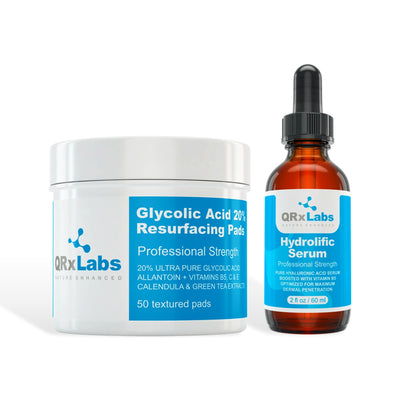The Link Between Acne & Diet: What to Eat & What to Avoid

Acne, a common skin condition that affects millions worldwide, isn't just influenced by genetics and skincare routines; diet also plays a crucial role. Understanding the connection between what we eat and acne flare-ups can empower us to make informed dietary choices for clearer, healthier skin.
The Diet-Acne Connection
Recent studies have shed light on how certain foods can exacerbate or alleviate acne. While no "one size fits all" diet guarantees acne-free skin, evidence suggests that specific dietary patterns can influence acne development due to their impact on hormones, inflammation, and the microbiome.
Foods That May Worsen Acne
- High-Glycemic Index Foods: Foods that cause a rapid spike in blood sugar—such as white bread, sugary drinks, and processed snacks—can increase insulin levels. Elevated insulin can boost sebum production and promote hormonal fluctuations that contribute to acne.
- Dairy Products: Some research indicates a link between dairy consumption and acne severity. Dairy may affect hormone levels, including insulin and insulin-like growth factor 1 (IGF-1), which can exacerbate acne in some individuals.
- Fatty and Greasy Foods: While the myth that eating greasy food directly causes acne is debunked, diets high in unhealthy fats can increase inflammation in the body, potentially worsening acne symptoms.
Foods That May Help Reduce Acne
- Low-Glycemic Index Foods: Incorporating foods that cause a gradual increase in blood sugar—like whole grains, legumes, and most fruits and vegetables—can help manage insulin levels and reduce acne flare-ups.
- Omega-3 Fatty Acids: Foods rich in omega-3s, such as fatty fish (salmon, mackerel), flaxseeds, and walnuts, have anti-inflammatory properties that may help reduce acne severity.
- Antioxidants and Vitamins: A diet high in antioxidants, vitamins A, D, E, and zinc can support skin health and reduce inflammation. Colorful fruits and vegetables, nuts, seeds, and lean proteins are excellent sources of these nutrients.
Dietary Tips for Managing Acne
- Stay Hydrated: Drinking plenty of water throughout the day can help flush out toxins and support overall skin health.
- Limit Sugar and Refined Carbs: Opt for whole, unprocessed foods to keep blood sugar levels stable.
- Incorporate Probiotics: Foods rich in probiotics, like yogurt, kefir, and fermented vegetables, can support a healthy gut microbiome, which is linked to reduced inflammation and potentially, clearer skin.
- Focus on Whole Foods: A balanced diet rich in whole foods provides essential nutrients that support skin health and can help manage acne.
While diet is just one piece of the acne puzzle, making mindful dietary choices can significantly impact skin health. Understanding the link between diet and acne enables us to nourish our bodies and our skin from the inside out. Remember, dietary changes should complement a comprehensive skincare routine tailored to your needs. As always, it's best to consult with a healthcare provider or a dermatologist before making significant changes to your diet, especially if you have persistent acne.














